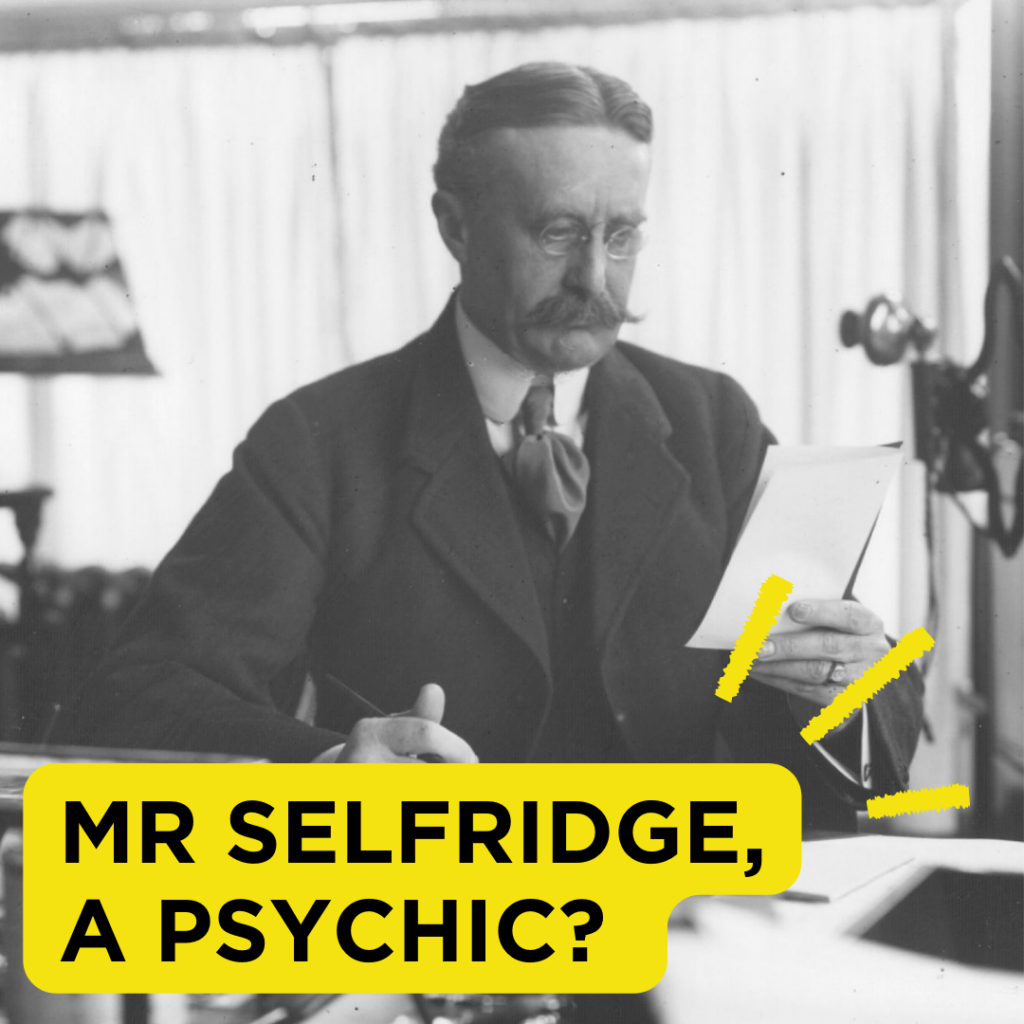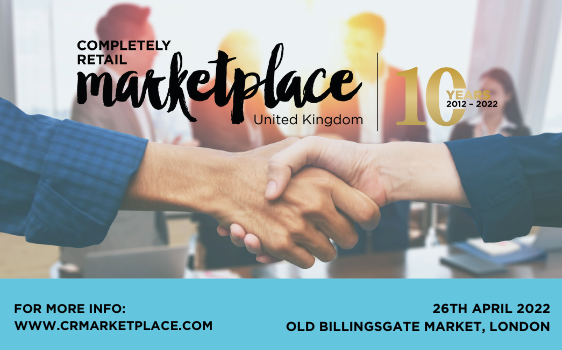4 Quotes that Show Harry Selfridge Predicted the Future of Retail
Harry Selfridge was a visionary. He didn’t just bring us the future we know, he predicted it.

Written by Lucinda Kelly, Managing Director of Completely Retail
It’s often said that Harry Selfridge was a man before his time, but most people take this to mean that he was a thought leader. This is true. His unconventional approach changed retail altogether. However, his approach and his words suggest something much deeper. Harry Selfridge was a visionary. He didn’t just bring us the future we know, he predicted it.
Despite the times he lived in, and the fact that he had no way to know just how far technology would take us, he predicted what’s happening here and now. Here’s the proof.
1. “People will sit up and take notice of you if you will sit up and take notice of what makes them sit up and take notice”.
Let’s go back in time and look at this through Selfridge’s lens again. Conservatives were in control and the Labour Party was emerging. The Women's Social and Political Union (WSPU) had just formed to promote women’s suffrage. Selfridge had just come to London and shocked by what he found in the shops. Items were tucked away over worries of theft and shoppers had to ask often unhelpful or brusque attendants for assistance if they wanted to look at or purchase anything. He knew he could do better and so in 1909, he launched Selfridge’s.
Selfridge then covered all the bases with his strategy. He treated his employees well, paying more than competitors. He trained them well too, insisting that they be helpful and not pushy. He took great care of his customers, turning shopping from a perfunctory trip into an enjoyable all-day event. And, he supported women, created spaces within his shop for them to congregate without the usual stigma of the day that came from going out unattended. It worked.
That proves what he had to say was relevant to his time, but it’s also true now. The difference is we don’t have to rely on our guts or intuition to tell us what makes people take notice. We have data to show us where our audiences are and information necessary to identify what they’re interested in.
2. “Honesty always pays. Honesty alone will never build a business… but the policy of honesty, of scrupulous integrity, will—other things being reasonably equal—always win in the race for success.”
Honesty and integrity have always been important, but in the days of yore, a slipup meant your blemish would only travel via word of mouth or would be quickly forgotten when a new scandal hit the newsstands.
Today, if you’re running a business without honesty or integrity, word of your transgressions will be printed online before the transaction is even complete. Those transgressions will follow you and haunt you, showing up every single time someone looks for information about your shop online. The only way to correct a blemish is to bite the bullet, apologise, and do the right thing. Every. Single. Time. Companies that don’t operate ethically or don’t correct mishaps not only lose business but go out of business for good.
3. “Treat [the customer] as guests when they come and when they go, whether or not they buy. Give them all that can be given fairly, on the principle that ‘to him that giveth shall be given’. Remember always that the recollection of quality remains long after the price is forgotten. Then your business will prosper by a natural process”.
Selfridge was genuinely an ethical man who took good care of his staff and coined the phrase ‘the customer is always right’. It wasn’t until years after his death that psychologists became interested in the phenomenon of giving and how it impacts sales. We now know:
- People buy more when they’re given free stuff.
- People prefer getting more of something free than getting a discount, even if the discount is the better deal.
- People feel obligated to respond in kind when someone does a favour for them.
- People talk about a product 20% more when they’re given it free.
We’re in an age where your reputation is everything, people share their experiences with everyone online at breakneck speeds, and you have the ability to get 20% more FREE positive press.
4. “Excite the mind, and the hand will reach for the pocket”.
Selfridge knew how to create value beyond the products he offered; in the community gathering spaces he created for women, gardens, dining, classes, and other activities. And, as evidenced by his prior statement, he saw value in these experiences “whether or not they buy”. Selfridge knew the sale would eventually come because he used the space in his store to engage visitors. Engaging visitors with an experience to create a relationship with a long-term customer… Sound familiar? That’s exactly how someone would describe experiential marketing today.
Now that you see it, what will you do with it?
The problem is, so many retailers forget Selfridge’s messages. They’re focused on the metric of how much a space costs per square metre. That’s not the metric that matters. It’s the recollection—the emotional connection—that matters. While it may seem intangible, we can measure this with hard numbers now. Footfall, heatmaps, sentiment, followers, likes, and so much more, can be leveraged to gain insights on what your space is really doing for you.
Selfridge knew this more than 100 years ago. If you’re not treating your space like it’s your greatest marketing campaign, it’s time to get up to speed. The physical retail space is not about product, it is about production. Last year at Completely Retail, we carried out an evaluation of the brand and retailer enquiries that came into our platform and notably 30% (and growing) were seeking leases for shorter term bookings. On top of this, there has been a spike in brands seeking the spaces to create experiences. Smart marketers realise that convergence of offline and online means offline is the place to create the memorable experience driven to online where the transaction can take place.
On the back of this market insight, we have just launched Completely Flexible, a marketplace of retail units available for bookings under 2 years. We cannot forget our beloved Harry Selfridge, the pioneer of creating experiences in his store. I wonder if we contacted him today, the visionary that he was, would he list his vacant in-store spaces on Completely Flexible to allow exciting digital native brands create online experiences in his store and attend Completely Retail Marketplace to meet face to face with new concepts wanting to enter the exciting world of retail.


